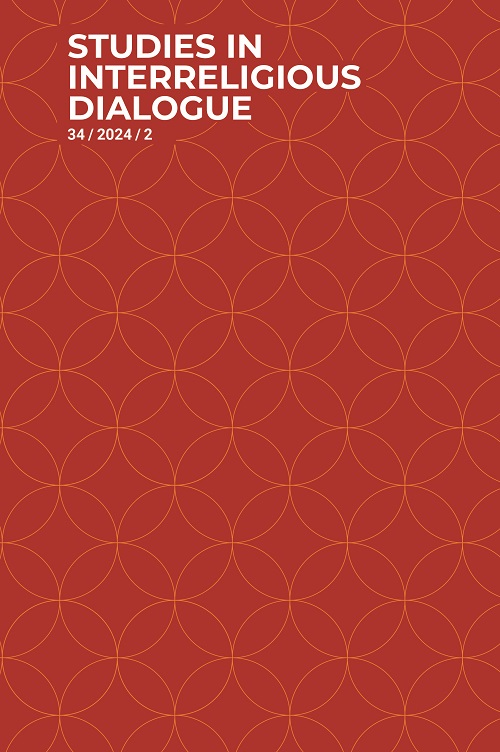 previous article in this issue previous article in this issue | next article in this issue  |

Preview first page |
Document Details : Title: Balancing within Three Dimensions Subtitle: Christianity, Secularity, and Religious Plurality in Social Policy and Theology Author(s): WELLER, Paul Journal: Studies in Interreligious Dialogue Volume: 26 Issue: 2 Date: 2016 Pages: 131-146 DOI: 10.2143/SID.26.2.3200411 Abstract : Arising out of UK empirical research into religion, belief and discrimination, this paper argues that the ‘three dimensional’ approach taken by the project to understanding and applying its findings is potentially applicable also in the wider European context. Arguably such an approach will enable a theological and social policy connection with respect to the Christian, secular, and religiously plural context of interreligious and wider social relations. In contrast to such an approach, a call for Christianity to retain a privileged central position within such social policy milieu does not adequately take account of the realities of a growing religious plurality as well as increasingly ‘non-religious’ or otherwise ‘secular’ dimensions of today’s world. At the same time, strident campaigns for secular measures to be given priority do not take sufficient account of the substantial numbers of those who continue to identify with a religion in varied ways, or the relatively highly valued significance of religion found especially among cultural minorities. Further, any attempt to try to ‘equalize’ the various religious traditions will run into the clearly different historical and social position of Christianity within Europe; while any of the apparently seductive options for the religions to form a ‘united front’, either apart from or over and against the secular, would likely result in damage to the theological and social health of all the religions. In contrast to these approaches, I argue that in both theology and social policy, a balancing of the Christian, secular and religiously plural dimensions is capable of facilitating the kind of evolutionary development that can mediate constructively between the importance of historical inheritance and the need for adaptive and creative change within interreligious and wider social relations. |
 |


